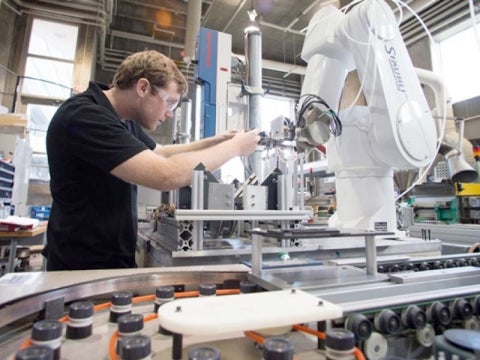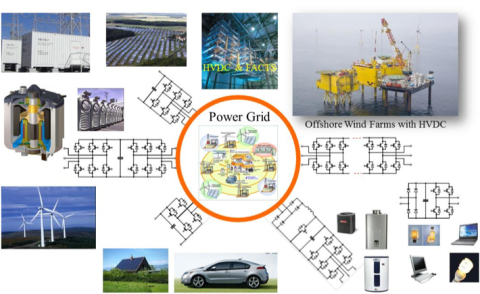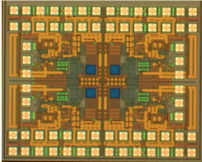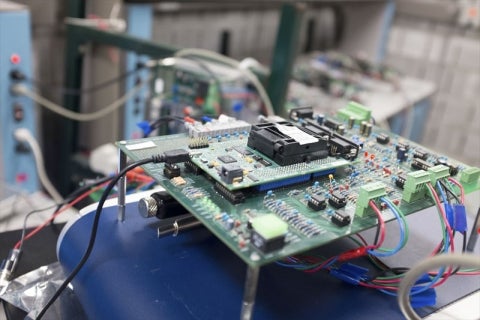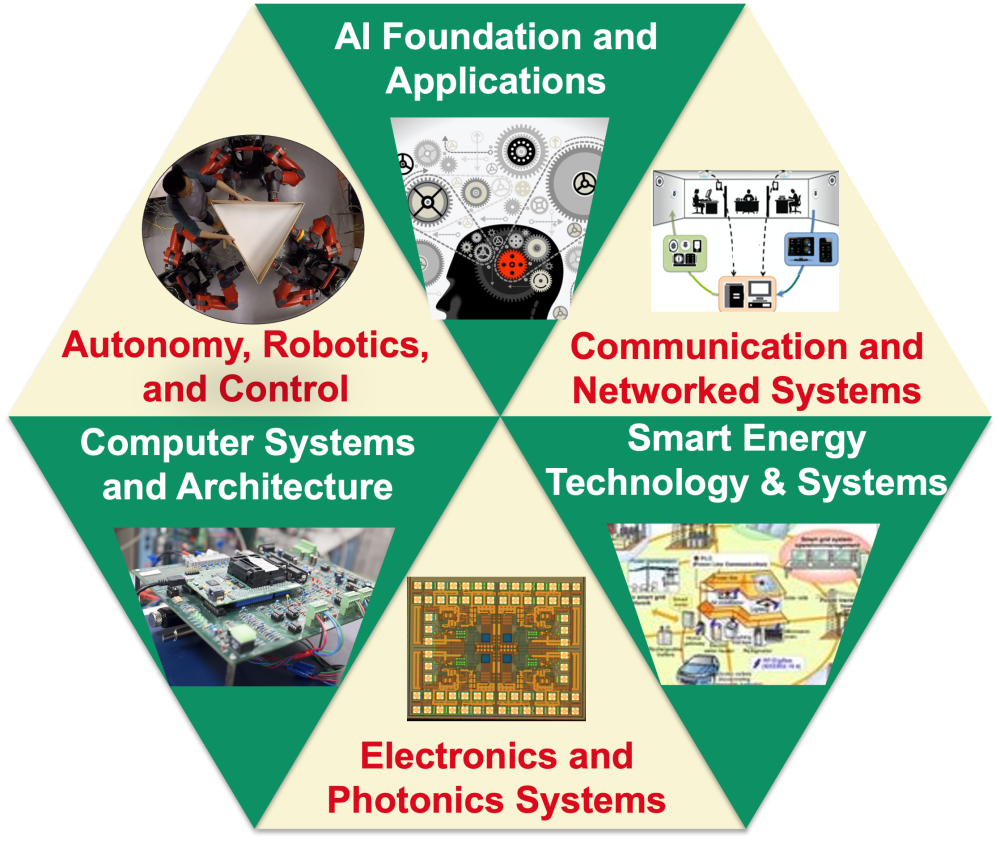 The core areas in ECSE are the foundation of many high impact applications that ECSE faculty are engaged in, including: Artificial Intelligence and Machine Learning, Big Data, Internet of Things, Computer Architecture and Hardware Design, Cybersecurity, Terahertz Communication and Sensing, Robotics and Automation, Human/Automation Systems, Smart Grid, Renewable Energy Systems, Smart Buildings, Quantum Systems, Advanced Electronics Materials, and many others. These core areas also drive ECSE course offerings in the undergraduate curriculum and at the graduate level. There are numerous undergraduate and graduate research opportunities in these core research and related application areas.
The core areas in ECSE are the foundation of many high impact applications that ECSE faculty are engaged in, including: Artificial Intelligence and Machine Learning, Big Data, Internet of Things, Computer Architecture and Hardware Design, Cybersecurity, Terahertz Communication and Sensing, Robotics and Automation, Human/Automation Systems, Smart Grid, Renewable Energy Systems, Smart Buildings, Quantum Systems, Advanced Electronics Materials, and many others. These core areas also drive ECSE course offerings in the undergraduate curriculum and at the graduate level. There are numerous undergraduate and graduate research opportunities in these core research and related application areas.
Research Areas
Research Area Descriptions
The next industrial revolution will largely be driven by Intelligent Technologies (ITs). It will mark with the ubiquitous presence and applications of intelligent algorithms and systems, such as autonomous machines and smart devices. ECSE faculty has a long tradition in developing intelligent technologies. The AI Foundations and Applications (AIFA) group performs fundamental research in AI and machine learning as well as their applications to various physical systems.
This field deals with the encoding, transmission, retrieval, and interpretation of information in many forms. Students may pursue programs of study focusing on mathematical modeling and analysis, algorithm design, and hardware/software implementation of solutions for efficient information transmission and retrieval.
With focuses on the methodologies and applications in control, robotics, and automation the ECSE faculty in this area conduct multi-disciplinary cutting-edge research with emphasis on high impact applications. Methodological tools include complex large-scale systems, network science, formal methods, machine learning, vision and perception, and cognitive engineering. Applications span human-robot systems, advanced manufacturing, cyber-physical systems, autonomous systems, power systems, thermal management, biological systems, human health, micro-robotics, and materials processing.
The program includes the study of power system dynamics and control, and the role of power electronics in renewable resource integration in large power grids. The programs apply techniques from other disciplines on the various aspects of power system operation, such as cyber security and data analytics.
Work in this area primarily focuses in developing new devices using cutting edge technology and then employing them in building state of the art systems with the aim of improving the modern electronic industry.
Computers have become almost as pervasive as food. While there are many users of computer technology and many who write programs, the future of computing depends on the underlying electronic devices that compose them and the digital logic operations they perform. Computers use circuits that connect these devises. While current computers are nearly exclusively fabricated with CMOS, progress has been largely obtained by device scaling. This becomes difficult as the physical dimensions of the devices become so small that only a handful of dopant atoms can be used to define their operation. As such, novel approaches to computing are needed along with new devices.




